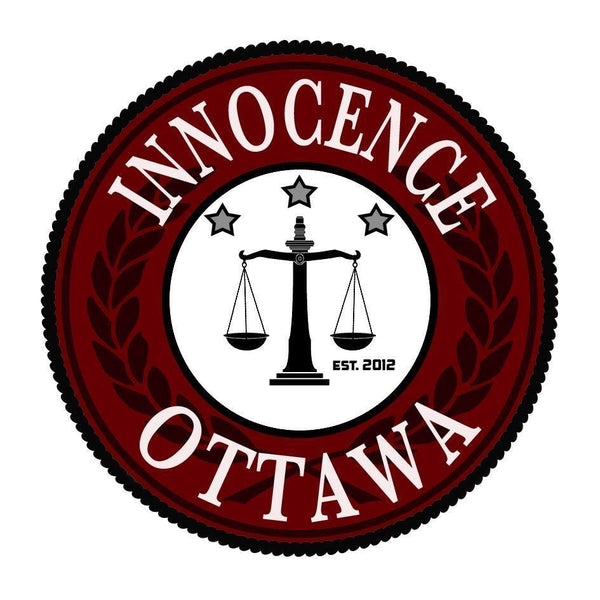Wrongful Convictions
The role of Innocence Ottawa is to help the wrongly convicted who claim innocence and are seeking a review of their conviction. Members of Innocence Ottawa work to uncover new evidence about their case. Ultimately, our goal is to facilitate an application based on fresh evidence to the Criminal Conviction Review Group (CCRG) of the Department of Justice.
What is wrongful conviction?
A wrongful conviction occurs when an innocent person is found guilty of a crime they did not commit due to errors or failures within the criminal justice system. This injustice results in the punishment of innocent individuals, often leading to significant emotional, psychological, and societal consequences. A wrongful conviction disrupts the lives of the wrongly convicted and their families, and moreover a wrongful conviction results in the guilty person going free.
Causes of wrongful convictions
Wrongful convictions rarely result from a single factor, but are typically the outcome of a confluence of multiple factors such as:
- Coerced or false confessions
- Misleading testimony
- Flawed forensic evidence.
- Eyewitness misidentification
- False confessions
- Official misconduct
- Failure to disclose evidence
- False or misleading expert evidence
- Inaccurate witness or complainant testimony
- Unreliable testimony from a co-accused or a jailhouse informant
Path to exoneration
Innocence Ottawa will submit an application on behalf of the individual (CCRG). The CCRG works through the Department of justice Canada and their mandate is to review applications for conviction review and make recommendations to the Minister of Justice to intervene in cases where a miscarriage of justice likely occured.
- Preliminary assessment: The first stage involves a careful review of the information provided in the application. During this phase, all relevant details are examined to determine whether there may be sufficient grounds for further investigation. The assessment must take into account all pertinent facts and circumstances surrounding the case. If the preliminary review suggests that there is a reasonable possibility that a miscarriage of justice occurred, the case will proceed to the next stage.
- Investigation: Once the case moves to the investigation stage, CCRG counsel conducts a deeper examination of both the legal and factual issues presented in the application. This stage is more comprehensive and may involve various investigative methods, scientific, and assessments from forensic and social science specialists. The investigation may also involve consulting with police agencies, prosecutors, and defense attorneys, who were involved in the original case, as well as reviewing Correctional Service Canada files or other relevant personal information.
- Investigation report: After the investigation is complete, CCRG counsel prepares a detailed investigation report. This report summarizes the information collected during the investigation and presents a clear picture of the findings. It serves as a comprehensive account of the efforts made to verify or refute the claims raised in the application and helps inform the final decision-making process.
- Decision by the Minister: In this final stage, the Minister thoroughly reviews all materials, and makes a final determination regarding the applicant's case. The Minister has several options available, including dismissing the application or taking further action. Depending on the circumstances, the Minister may refer a question of law to the provincial or territorial court of appeal to ensure that justice is served.
If you would like more information on the process of Criminal Conviction Review, please visit the Government of Canada website.
